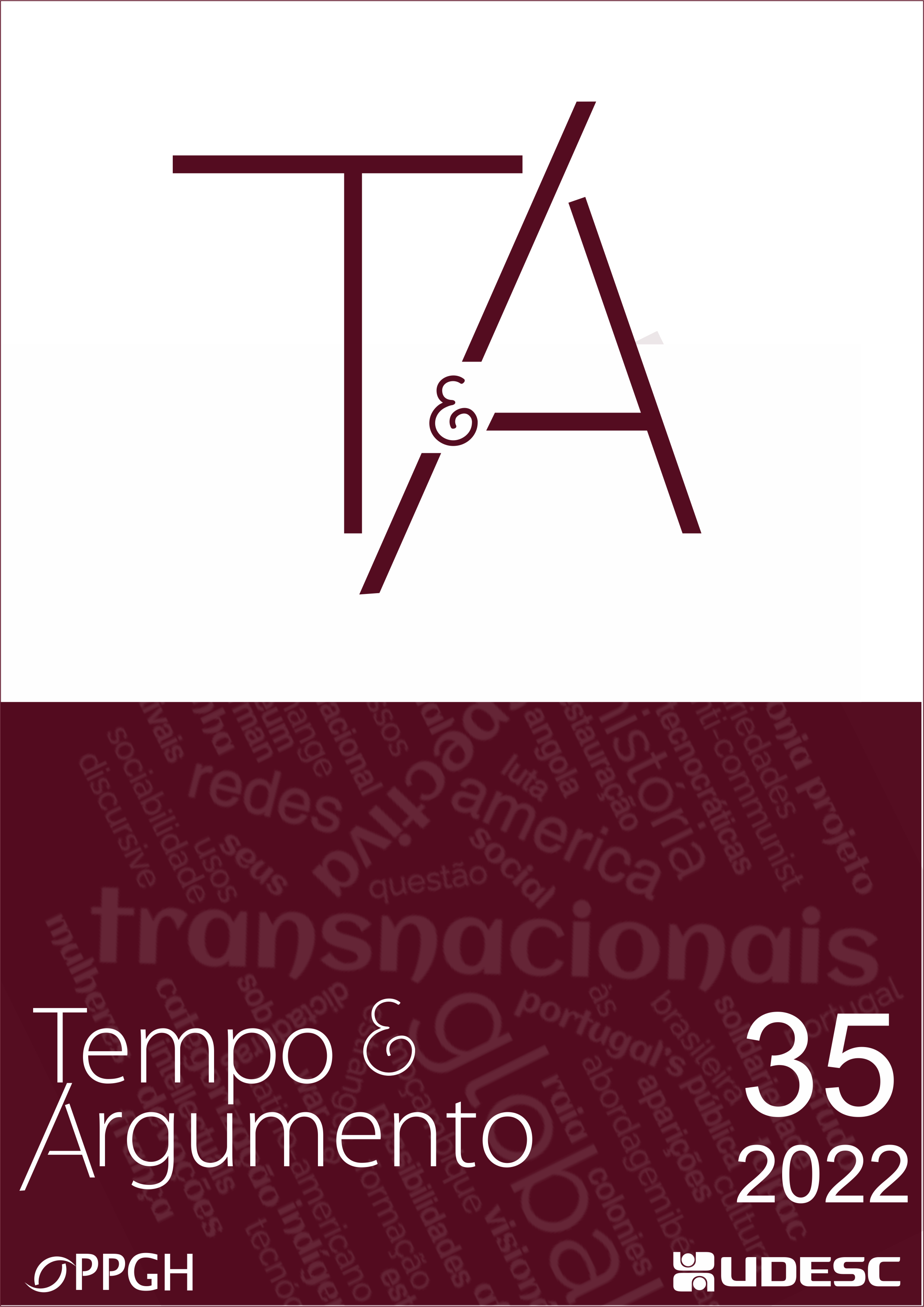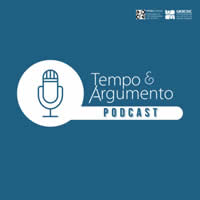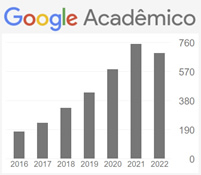Latin American cinema, European festivals and solidarity networks
DOI:
https://doi.org/10.5965/2175180314352022e0110Abstract
This article aims to analyze the role that European film festivals played in the articulation of a solidarity network for the victims of the Chilean dictatorship in the first years after the 1973 coup d'état. Through a transnational perspective and in dialogue with festival studies, the text examines the complexity of the links between Latin American political cinema and the film meetings that took place in Europe since the previous decade, focusing on the "long" 1968, a period marked by aesthetic, discursive and institutional renewal that changed the nature of European festivals. In this way, the presence of films, film agents, other public figures, critics, audiences, protest statements, press coverage, among other aspects that make up a festival is analyzed as part of a broader phenomenon of rapprochement between Latin America and Europe around the notion of solidarity and engagement in "Third Worldist" agendas. The article studies the presence of the Chilean cause in three specific festivals, taken as case studies: the Pesaro International New Cinema Festival, the Cannes Film Festival, and the Leipzig International Documentary Film Festival. These meetings present different degrees of centrality in the festival circuit and are located in different countries/blocks of influence zones, which allows us to understand the complex flows that have been established in the solidarity networks.
Keywords: festival; Chile; dictatorship; solidarity.
Downloads
References
AGUIAR, Carolina Amaral de. A solidariedade ao Chile nos festivais e encontros de cinema. Kaminski, Rosane; Pinto, Pedro Plaza (Orgs.). Cinema e pensamento. São Paulo: Intermeios, 2021, p. 131-141.
AGUIAR, Carolina Amaral de. Los prisioneros y la muerte del poeta: el Chile de la dictaduraante las cámaras extranjeras. Archivos de la filmoteca: revista de estudios históricos sobre la imagen, n. 73, p. 17-23, out. 2017.
AMIEVA, Mariana. El Festival Internacional de Cine Documental y Experimental del SODRE: las voces del documental y un espacio de encuentro para el cine latinoamericano y nacional. In: Torello, Georgina (ed.). Uruguay se filma. Prácticas documentales (1920-1990). Montevideo: Irrupciones, 2018, p. 87-113.
CAMACHO PADILLA, Fernando; CRISTIÁ, Moira. La resistencia cultural a las dictaduras del Cono Sur. Un estudio comparado de la solidaridad desde Francia y Suecia con Chile y Argentina a partir de la gráfica política (1973-1990). Revista Eletrônica Da ANPHLAC, São Paulo, v. 21, n. 30, p. 182–239, jan./jul. 2021. Disponível em: https://doi.org/10.46752/anphlac.30.2021.3979. Acesso em: 14 nov. 2021.
COMPAGNON, Olivier. L’Euro-Amérique en question : comment penser les échanges culturels entre l’Europe et l’Amérique latine. Nuevo mundo, nuevos mundos, Paris, posto online em 3 fev. 2009. Disponível em: http://nuevomundo.revues.org/54783. Acesso em: 14 nov. 2021.
DÁVILA, Ignacio Del Valle. ¿Hacia qué tercer cine? Un análisis de la evolución de la teoría del tercer cine a partir de los trabajos de Fernando Solanas y Octavio Getino. Nuevo Mundo Mundos Nuevos, Paris, posto online em 5 out. 2021. Disponível em: http://journals.openedition.org/nuevomundo/85848. Acesso em: 14 nov. 2021.
DE GRANDIS, Rita. The Hour of the Furnaces: A Film “Happening”. In: Gerhardt, Cristina; Saljoughi, Sara (Eds.). 1968 and Global Cinema. Detroit: Wayne State University Press, 2018, p. 117-143.
DE LOS CINEASTAS latinoamericanos presentes en el Festival de Pesaro a todos los participantes. 1973. Arquivo da Cinemateca Cubana do ICAIC. Texto inédito.
DE VALCK, Marijke. Film festivals from european geopolitics to global cinéfila. Amsterdã: Amsterdam University Press, 2007.
DEL VALLE DÁVILA, Ignacio. Cámaras en trance: El Nuevo Cine Latinoamericano, un proyecto cinematográfico subcontinental. Santiago do Chile: Cuarto Propio, 2014.
ELSAESSER, Thomas. Film Festival Networks: The New Topographies of Cinema in Europe. In: Elsaesser, Thomas. European Cinema: Face to Face with Hollywood. Amsterdã: Amsterdam University Press, 2005, p. 82–107.
FERRO, Marc. Cinema e História. Rio de Janeiro: Paz e Terra, 1992.
XXIXÈME FESTIVAL INTERNATIONAL DU FILM, Cannes: Festival international du film, 1976.
GOETSCHEL, Pascale; HIDIROGLOU, Patricia. Introduction. In: Fléchet, Anaïs et al. (Org.). Une histoire des festivals: XXe-XXIe siècle. Paris: Publications de la Sorbonne, 2013, p. 7-15.
HAEDLER, Manfred. Das Kino als Tribunal. Der Morgen, Berlim oriental, 2 nov. 1976. Arquivo da Cinemateca Cubana do ICAIC.
HENNEBELLE, Guy. Préambule: La nostalgies est toujours ce qu’elle était. CinémAction: Fernando Solanas ou la rage de transformer le monde. Paris, n. 101, p. 9-14, 2001.
LE CHILI a Pesaro. Positif, Paris, n. 164, p. 40-42, dez. 1974.
MARCORELLES, Louis, La violence quotidienne. Le monde, Paris, 21 maio 1975. Arquivo Cinefiles da Universidade de Berkeley.
MESTMAN, Mariano. Presentación. Las rupturas del 68 en el cine de América Latina Contracultura, experimentación y política. Mestman, Mariano (Coord.). Las rupturas del 68 en el cine de América Latina. Buenos Aires: Ediciones Akal, 2016, p. 7-61.
MOINE, Caroline. Cinéma et Guerre froide: histoire du festival de films documentaires de Leipzig (1955-1990). Paris: Publications de la Sorbonne, 2014.
MORETTIN, Eduardo Victorio. O cinema como fonte histórica na obra de Marc Ferro, História, questões & debates, Curitiba, v. 38, n. 1, p. 11-42, 2003. Disponível em: https://revistas.ufpr.br/historia/article/view/2713. Acesso em: 14 nov. 2021.
ORTEGA, María Luisa. El 68 y el documental en Cuba. Archivos de la filmoteca: revista de estudios históricos sobre la imagen. Valência, n. 59, p. 75-92, 2008.
ORY, Pascal. Qu’est-ce qu’un festival ? Une réponse par l’histoire. In: Fléchet, Anaïs et al. (Org.). Une histoire des festivals: XXe-XXIe siècle. Paris: Publications de la Sorbonne, 2013, p. 19-32.
PALACIOS, José Miguel, Resistance vs. exile: the political rhetoric of Chilean exile cinema in the 1970s. Jump cut, a review of contemporary media, Bloomington, 20 nov. 2016 [online]. Disponível em: https://www.ejumpcut.org/archive/jc57.2016/-PalaciosChile/index.html. Acesso em: 14 nov. 2021.
PICK, Zuzana Mirjam. Pesaro 1974. Positif, Paris, n. 164, p. 39-40, dez. 1974.
PRATT, Mary Louise. Arts of the Contact Zone. Modern Language Association, Nova York, 1991, p. 33-40. Disponível em: <https://www.jstor.org/stable/25595469>. Acesso em: 14 nov. 2021.
RICHE, Daniel, La batailles du Chili: 2e partie: le coup d’État, Liberation, Paris, 21 jan. 1977. Arquivo Cinefiles da Universidade de Berkeley.
RODRÍGUEZ, Israel. Del nacionalismo al tercermundismo. El itinerario mexicano de Miguel Littín. Estudios del ISHIR, Rosário, v. 10, n. 28, p. 1-17, 2020. Disponível em: https://web3.rosario-conicet.gov.ar/ojs/index.php/revistaISHIR/article/view/1322. Acesso em: 14 nov. 2021.
RUEDA, Amanda. 1967-2007: 40 Años de Los Encuentros de Viña Del Mar o de La Constitución Del Nuevo Cine Latinoamericano. Cinémas d’Amérique Latine, Toulouse, n. 15, p. 93–101, 2017. Disponível em: http://www.jstor.org/stable/42598396. Acesso em: 14 nov. 2021.
RUEDA, Amanda. Films latino-américains, festivals français. Caravelle, Toulouse, n. 83, p. 87-104, 2004. Disponível em: http://www.jstor.org/stable/40854152. Acesso em: 14 nov. 2021.
SILVA, Alexsandro de Sousa. Cinema, Política e Exílio: o caso Miguel Littín. Foz do Iguaçu, CLAEC, 2021.
SLATMAN, Melisa. Dictaduras de seguridad nacional en Chile y Argentina. Estudio comparativo y relacional de sus estrategias represivas. Aletheia, La Plata, v. 7, n. 13. Disponível em: http://www.memoria.fahce.unlp.edu.ar/art_revistas/pr.7618/pr.7618.pdf. Acesso em: 14 nov. 2021.
STAM, Robert. The “Long 1968” and Radical Film Aesthetics. In: Gerhardt, Cristina; Saljoughi, Sara (Eds.). 1968 and Global Cinema. Detroit: Wayne State University Press, 2018, p. 23-42.
STEVENS, Kirsten. Across and in-between: Transcending disciplinary borders in film festival studies. Fusion Journal, Granada, n. 14, 2018, pp. 46-59. Disponível em: http://www.fusion-journal.com/across-and-in-between-transcending-disciplinary-borders-in-film-festival-studies/. Acesso em: 14 nov. 2021.
VALLEJO VALLEJO, Aida. Festivales cinematográficos: en el punto de mira de la historiografía fílmica. Secuencias, Madri, n. 39, p. 13-42, primeiro semestre de 2014. Disponível em: https://revistas.uam.es/secuencias/article/view/5838. Acesso em: 14 nov. 2021.
VILLARROEL, Mónica; MARDONES, Isabel. Señales contra el olvido: cine chileno recobrado. Santiago do Chile: Cuarto Propio, 2012.
WEINSTEIN, Bárbara. Pensando a história fora da nação: a historiografia da América Latina e o viés transnacional. Revista Eletrônica da Anphlac, São Paulo, n. 14, p. 9-36, jan./jun. 2013. Disponível em: https://revista.anphlac.org.br/anphlac/article/view/2331. Acesso em: 14 nov. 2021.
Downloads
Published
How to Cite
Issue
Section
License
Copyright (c) 2022 Tempo e Argumento

This work is licensed under a Creative Commons Attribution-NonCommercial 4.0 International License.
The articles published by the magazine are for free use, destined for educational purposes and not commercial. The copyrights are all granted to the magazine. The articles whose authors are identified represent the expressed opinion of its authors and not the official position of the Tempo e Argumento magazine or of the Postgraduate Program in History of the Universidade do Estado de Santa Catarina.




